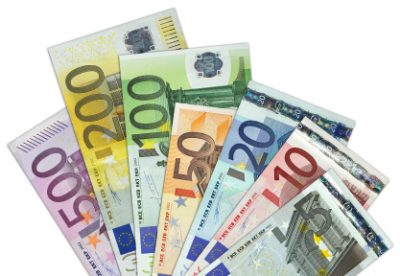By
Anant Mishra
The financial crisis seems to be an inexhaustible issue, continuously drawing the attention of economists worldwide. However, while countries are steadily recovering and economies are slowly healing, the epicentre of the problem seems to be shifting to a new direction: what about the countries which are still unable to make ends meet? Within the Eurozone, the measures highly indebted countries took to escape the grips of recession haven’t seemed effective.
The Greek economy for instance, has not returned to levels of normality, even in the aftermath of all the austerity measures taken and the financial help received. Outside the European continent, it is not so much the crisis that affects the economy, but the state of insecurity and instability that Middle Eastern countries experience. In Syria and Egypt, civil war and the possibility of military intervention have left central governments helpless in their attempts to control business operators and possible illicit transactions. Whatever the underlying cause, countries around the globe seem unable to sustain their economy and it is on this committee’s agenda to resolve this issue, by providing useful guidelines on how to create a secure economic environment and offering relevant solutions that can suit each country’s framework. In the making of a pertinent resolution, that has applicability to most of the countries under discussion; past measures will be taken into account and built upon, so as to reach an improved and better-functioning set of regulations.
The Eurozone is the economic region in Europe that has decided to use a single currency – the Euro. Most countries in Europe have adopted the currency. Some countries, however, declined to do so, such as the United Kingdom, which still uses pound sterling. The currency has officially come to existence in 1999 and by 2008 it started to become heavily affected by the financial crisis. Therefore, in December the same year, “EU leaders agree on a 200 billion stimulus plan to help boost the European growth following the global financial crisis.”
In 2009, “the EU ordered France, Spain, the Irish Republic and Greece to reduce their budget deficits – the difference between their spending and their tax receipts.” In the same year, Greece has not followed the protocol resulting in high debt and downgrading of the Greek bank and government. Portugal, Ireland, Greece, and Spain remain the heavily indebted countries in Europe. Greece’s debts have worsened to the point that the European central bank thought of evicting Greece from the EU.
A “110 billion” was used to bail out Greece. Portugal then followed suit by asking for help and received a bailout worth of 78 billion by 2011. There were a few considerations of having Greece as the first country to leave the Eurozone. However, a second bailout was agreed upon worth 108 billion, in attempts to rescue Greece and prevent damage to the other European economies.
Italy, although it initially had the third largest economy in Europe, has followed the example of Portugal, and got indebted quickly enough as a consequence of financial crisis. These ‘failing economies’, have contributed to the depreciation of the Euro and brought about economic instability in the EU.
While the financial crisis hit the Eurozone, in the Middle East it was conflict and civil war that caused economic tumult among the countries in the Arab League. The uprisings have taken their toll on countries such as Tunisia, Egypt and Syria, and while they managed to stabilize for a short period, they have fallen back again into a state of turmoil. This financial agitation has different underlying causes than the Eurozone crisis. The Eurocrisis was a repercussion of a collapse that was initially triggered by the Americans and it was founded mostly on economic principles. The recent Middle Eastern conflicts have political, ethnical and religious motives at core, which built up and later reflected on the financial sector. Military instability and a lack of centrality from the governments of these countries have nurtured an unhealthy economy, mainly based on illegal trade and illicit transactions.
Current Day Situation
“The Greek financial crisis of 2010 was caused by excessive deficit spending and total debt in excess of the country’s GDP. Coupled with near zero economic growth, and a downgrade of the debt rating, Greece faced the prospect of sovereign debt default. The financial markets panicked and the euro fell to its value of many years prior. The European Union worked out rescue loan plans to help problems.”
Greece has kept on spending beyond budget and over-borrowing. “Greek government deficit to GDP ratio was higher than the Eurozone average every year since the introduction of the Euro, and in 2009, it was more than double the average.” Greece seems to be the only member state in the EU that has cheated with its statistics for years. If other member states were to help out with Greece’s loans, it would only put them in 3% debt, which is relatively low compared to the amount that Greece actually is in debt. If this crisis persists, not only will the Greek government troubles deepen, but also those of all countries in the EU and furthermore even outside of the EU. The Euro may fall down more significantly, jeopardizing other countries’ economies as well.
Linked countries such as the United Kingdom are being affected by the issues in Greece, “Official statistics show that nearly 47% of UK exports went to the Eurozone in 2011, while nearly 43% of UK imports came from the Eurozone. A Long time spiral of decline in the economies of Europe would mean less demand for UK goods and services, and that could mean job cuts, especially in manufacturing.”
Not only will other countries of Eurozone be hit hard with Greece’s debts, citizens of its own country will suffer as well. For if no solution is found to the Greek crisis, many potential graduates will suffer in finding a career/job that will support them.
Italy, although being the third strongest economy in Europe, had its “unemployment at 12% and the country had a beginning debt pile, the second highest in the euro zone at 130% of the GDP.”
Italy has also been in decline for years, the past few years portraying the worst crisis the country has ever faced, with hopes fading for things to improve in Italy. “The government has reduced its growth expectations for the current year to minutes 13%. The bank of Italy, the country’s central bank, is even more pessimistic, forecasting economic contraction of 19%.”
Exports have not been doing very well in Italy for most companies usually “use plants in Italy to assemble parts made in factories abroad.”
More than eight million Italian citizens are below the poverty line, even the ones who are still employed. “Italy continues to fall behind internationally as a place to invest. It is now 44th in the world competitiveness centre (WCC) ranking, below the Philippines, Latvia, Russia, and Peru.”
Alongside Italy and Greece, we also encounter the examples of Portugal and the Irish Republic, countries which do not situate themselves anywhere better. As shown above, the Eurocrisis had a domino effect on the member states of the EU – more powerful economies, better prepared and higher ranked, suffered deeply in their attempts to alleviate the losses of indebted countries. One pertinent example is the UK, and another would be Germany. Although the latter holds together more bravely than the British, it is obvious that the tremendous efforts pulled together by the EU to bail out its more fragile members have scarred it significantly.
On the other hand, non-European countries are also suffering from an economic crisis. With a strict reference to Middle Eastern countries, we can speak of Egypt, which “is suffering its worst economic crisis since the Great Depression”, as a former Finance Minister of the country and of its leading economists have warned.
Egypt has been long suffering from an economic crisis, even before the uprising in January 2011. More than half of the population is suffering from poverty. “Egypt has experienced a drastic fall in both foreign investment and tourism revenues, followed by a 60% drop in foreign exchange reserves, a 3% drop in growth and a rapid devaluation of the Egyptian pound, all of which has led to high unemployment and an inflation in prices.”
In a similar situation to that of Egypt is Syria. “Addison Armstrong, director of research at tradition Energy, told CNBC that a military strike in Syria could create a widening disparity between the European oil benchmark and the U.S. benchmark.” The situation in Syria worsens every day and awareness has been raised at a global level, which can only mean that in this constant state of insecurity, the Syrian economy goes nowhere but down. There have already been numerous reports about trade being conducted between Syrian rebels and Turkish providers, not to mention the fact that normal prices (in a peaceful, stable state) have skyrocketed, against all governmental intervention. Syria supports many countries with its oil.
If the on-going crisis continues and aggravates, many western countries will suffer severely.



No Comments Yet!
You can be first to comment this post!